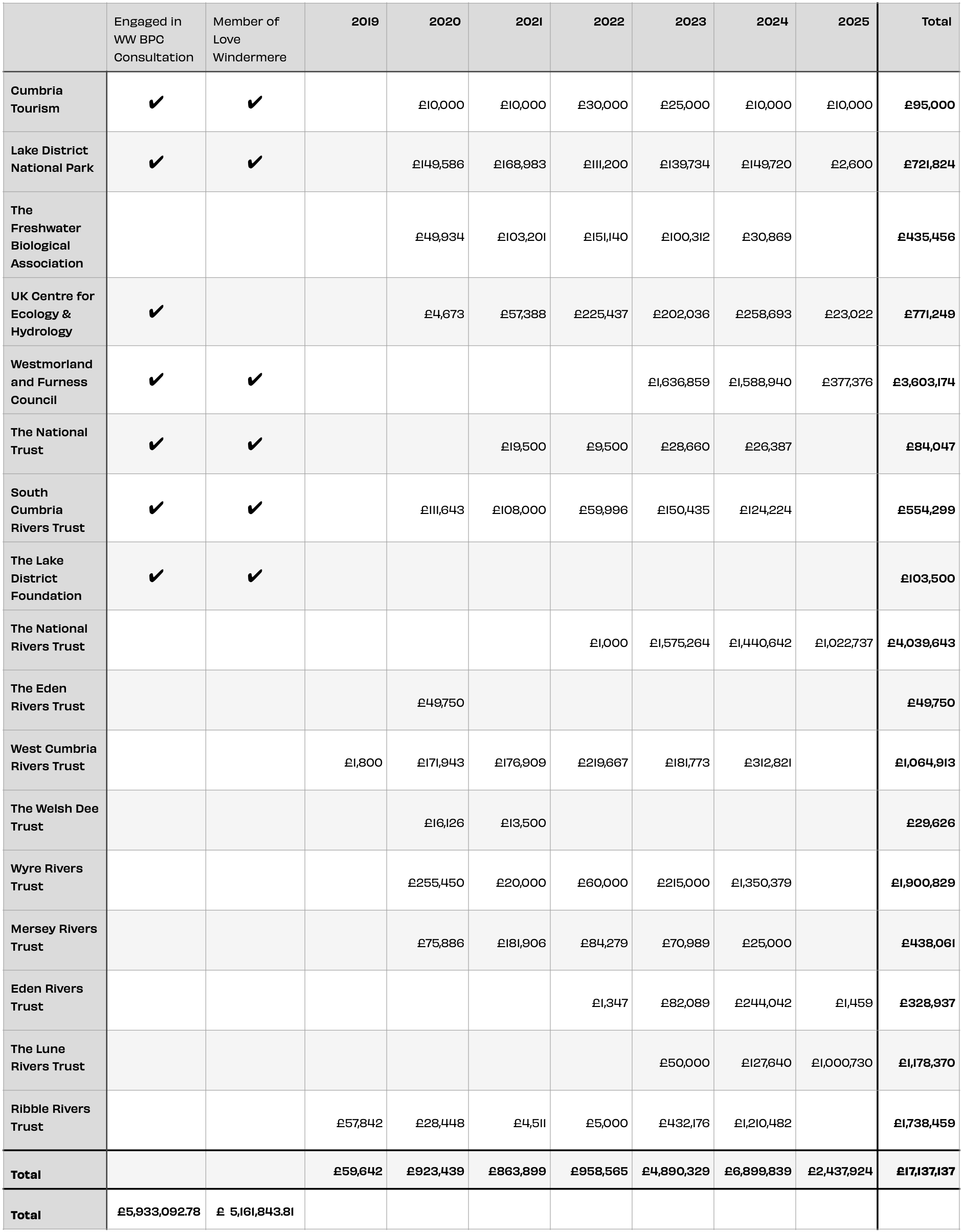Is United Utilities’ ‘Wonderful Windermere’ Scheme Really So Wonderful?
What is Wonderful Windermere and why should you care about it?
Wonderful Windermere is something called a Bespoke Performance Commitment (BPC). Think of it as the financial regulator’s attempt to inject “competition” into a monopolised industry. The scheme, proposed by United Utilities and accepted by Ofwat, is designed to let the company act as a self-declared "catchment convenor", stepping outside its statutory duties to try to reduce phosphorus pollution from third parties. Sounds reasonable, right? Why wouldn’t we support environmental improvements? As ever, the devil is in the detail.
What stood out to us initially was that the BPC would allow United Utilities to claim credit, and potentially significant financial rewards, for reductions in nutrient inputs from third parties. For example, in their initial proposal, United Utilities suggested that new woodland would be worth £17,441 per hectare per year, and wetlands £7,052. These are low-cost interventions that offer limited long-term benefits, yet they were being priced as though they delivered major environmental gains. Unsurprisingly, we challenged these numbers immediately, and Ofwat rejected them. But the key concern remains: why is the company pursuing cheaper, less effective measures rather than making the necessary infrastructure upgrades that would deliver far greater impact, more quickly?
We were sent the methodology as part of a selective consultation, and we had a lot to say, both in our subsequent letter to Ofwat, which you can find below, and in meetings with United Utilities. The company then revised the methodology to take some of our points into account, but we are still not satisfied. They can still claim pollution reductions using models and assumptions, not real-world measurements. They also get to choose who verifies their results, and many of the organisations involved in oversight have received funding from United Utilities. A clear conflict of interest.
If this methodology is accepted in its current form, it risks becoming a greenwashing exercise that protects reputations rather than delivering genuine environmental improvements. It would provide yet another example of water companies marking their own homework, using unverified data, and relying on friendly partners.
Save Windermere supports genuine environmental improvement, but only if it’s real, measurable, and independently verified. That’s not what the current BPC offers. And that’s why we’re fighting it.
Our Initial Letter to Ofwat
In this letter to Ofwat, we challenge major flaws in United Utilities’ £41 million AMP8 investment plan. From unreliable SAGIS modelling and the greenwashing risks of ‘Wonderful Windermere’, to evidence of illegal sewage spills. We urged Ofwat to reject the proposals and stop customers footing the bill.
Our Consultation Submission on the Wonderful Windermere BPC
This is our detailed response to United Utilities’ consultation on the BPC, where we expose the serious flaws at the heart of the “Wonderful Windermere” scheme. From flawed phosphorus modelling and profit-driven incentives to conflicts of interest and evidence of illegal sewage spills. We’re calling for independent oversight, real data and a full reset of the proposal. Read the full letter below.
Our Follow Up Letter to Ofwat Following the Consultation
In this follow-up letter to Ofwat, we make clear that United Utilities’ revised ‘Wonderful Windermere’ proposal still isn’t good enough. From unverified agricultural modelling to weak sampling methods and unresolved conflicts of interest, the scheme risks becoming a greenwashing exercise. We’re urging Ofwat to reject it unless major changes are made. Read the full letter below.
Conflicts of Interest
Funding provided by United Utilities to organisations in the North West, totalling £17M+ in the last 5 years.
Data provided by United Utilities under Environmental Information Regulation (EIR) request.


